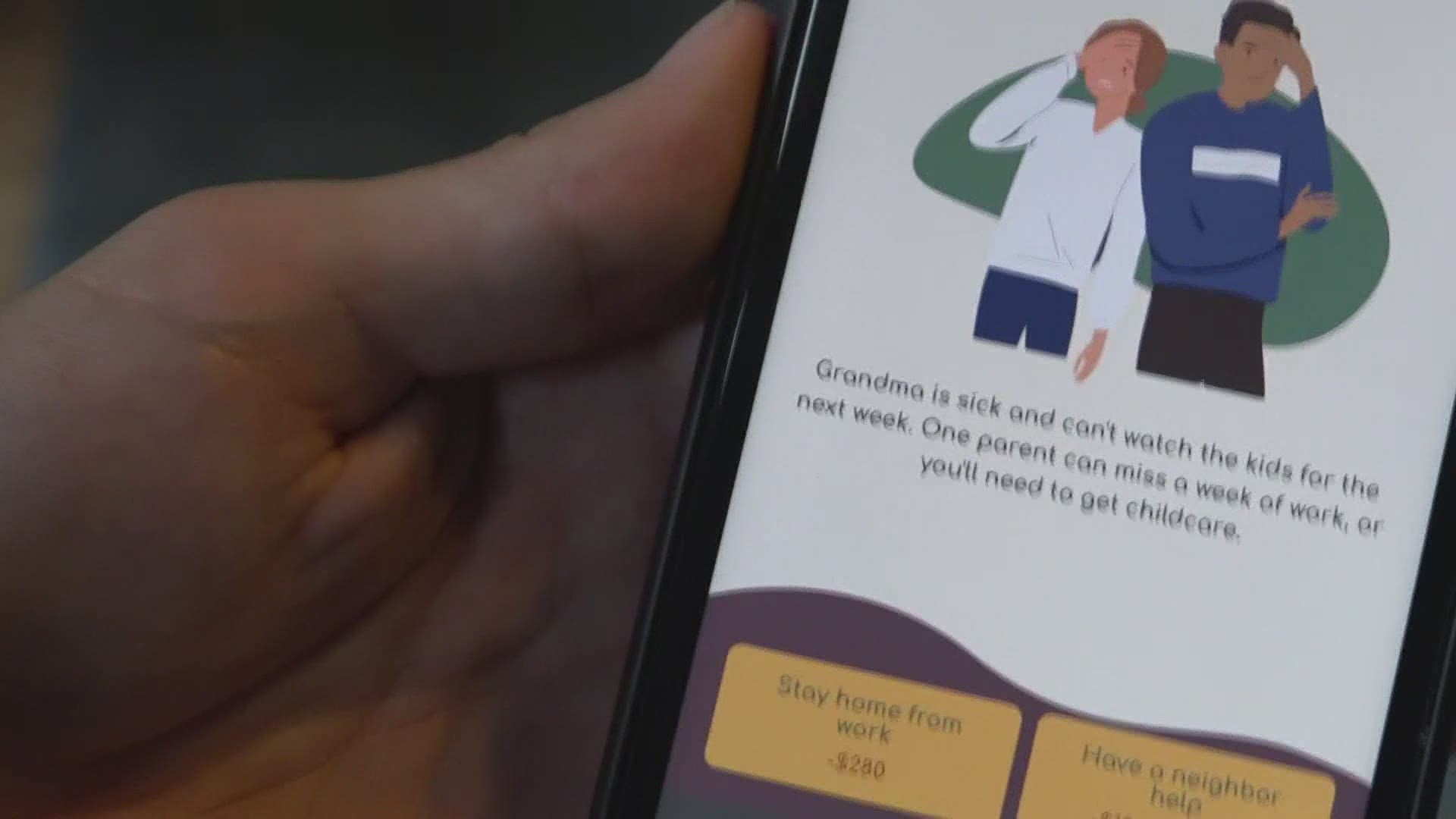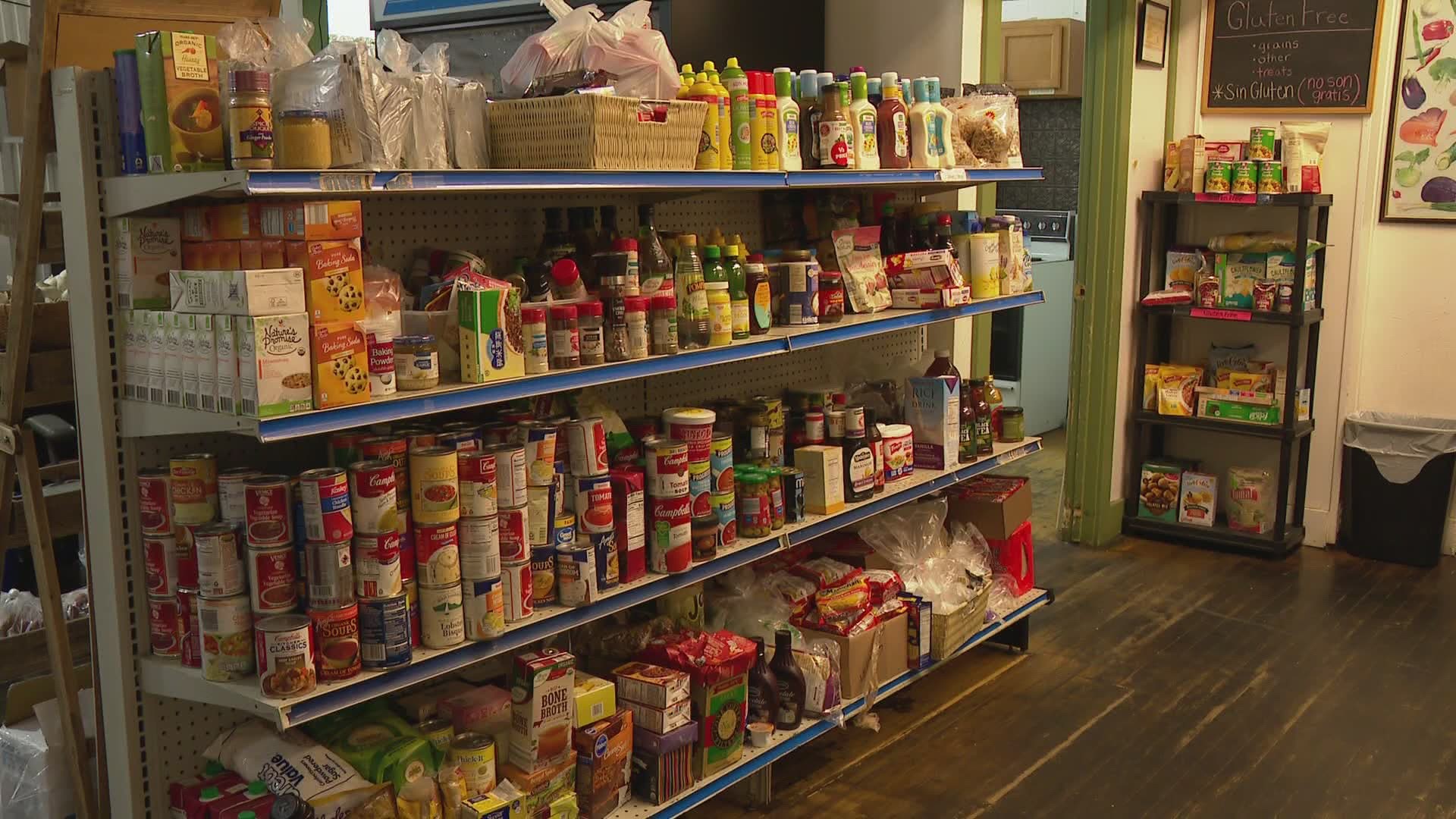GRAND RAPIDS, Mich. — Maribeth Groen and many others at the Heart of West Michigan United Way feel a sense of duty when it comes to helping people in Kent County meet basic needs like food, housing, and healthcare. That's become an even greater challenge since COVID-19 arrived in Michigan.
"So many families were already on the edge with individuals that lost their job, especially like in service industries," said Groen, who serves as the organization's Assistant Director of Marketing and Communications.
The United Way has also had to change how it gets the word out about people who fall through the cracks. Many of the businesses they would normally reach out to have their employees working remotely from home, so they can't interact with them in person.
"They needed a different tool," said Josh Leffingwell, a partner at the Well Design Studio on the northeast side of Grand Rapids.
"We helped them develop this simulation, this digital tool, that allows them to work with businesses and individuals so that they can build empathy around this idea of poverty and even for families who are living outside of poverty, how they can help them make ends meet."
The user can choose from four different scenarios to learn how people in different circumstances get by.
- Anthony is a single person
- Sandra and Ed are older people living on Social Security
- Carissa is a single mother
- Kara and Eric have two children of their own
"These are the families that are above the poverty line, but still even though they're working struggle every day just to meet basic needs," Groen said.
Each simulation takes about 10 minutes to complete and the user makes difficult decisions about challenges like paying bills, buying groceries, and taking care of children. Each decision determines how much money the characters are spending and how much stress they're going through.
"There's a lot of things that people don't think about -- little things like paying for a field trip for their daughter. That may not be a big deal for some families, but for families that are struggling they have to decide if they can afford to send their child on this field trip or what they are going to cut out of their budget to make that happen," Groen said.
Groen and Leffingwell hope the simulator will foster empathy and challenge stereotypes people may believe about those facing poverty and those just above the poverty line.
"There are stereotypes that poor people don't work, but in fact they're working. They're working hard. They're working maybe two or three jobs. They just can't get ahead," Groen said.
Well Design Studio wanted to make the simulator as accessible as possible, so while it works like a smartphone app, it's actually a website and you don't need a smartphone to try it.
"It works really well on your phone, or on your tablet, or on your desktop," Leffingwell said.
"When we heard about this project, we were so excited that the United Way understood the value of having a tool that would really help folks understand this complex situation and really invest in getting this message out there."
If you'd like to try the simulator, visit the Heart of West Michigan United Way's website.
►Make it easy to keep up to date with more stories like this. Download the 13 ON YOUR SIDE app now.
Have a news tip? Email news@13onyourside.com, visit our Facebook page or Twitter. Subscribe to our YouTube channel.


